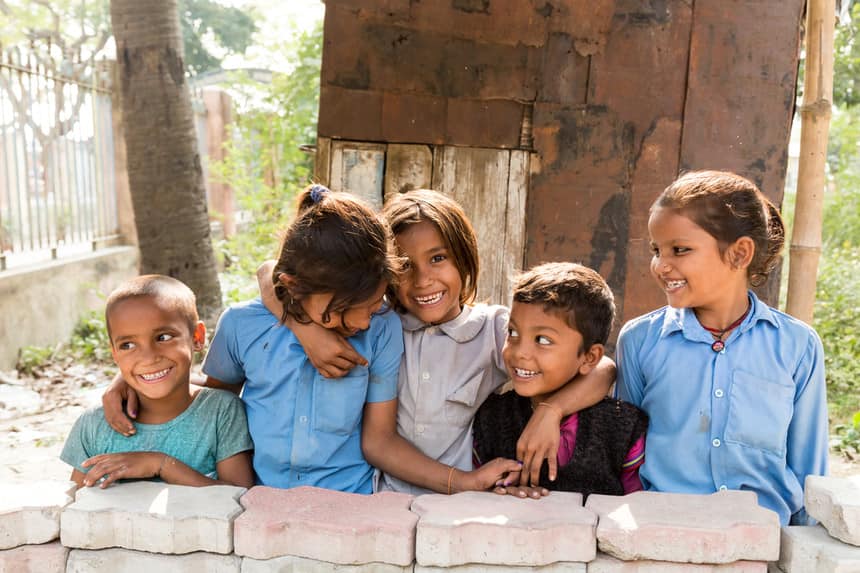9 Careers In Gender Studies You Can Take Up
The last few years have seen the emergence of many professionals and students clarifying the pronouns they want to be used for them. You may be doing it too. It is common to see names followed by He/His, She/Her, They/Their, Zir/Hir, etc. This wasn’t the case a decade back. What do these pronouns mean? Why have they become prevalent? On a very different note, you may have often come across data and news about gender differences, female foeticide in your Social Science books, or observed how society treats boys and girls. All these instances are examples of the varied applications of gender in society.

Gender Studies is a vast subject with a landscape of potential specialisations and careers. Their courses are relatively newer and have become more popular in the last decade. As a result, the career pathway is fuzzier than mainstream courses even though it may have very diverse applications. Let’s look at some popular career choices in Gender Studies.
Research
A course in Gender Studies equips you to think critically, analyse data, and draw conclusions. A student of Gender Studies is a good candidate for research in the social, educational, and even corporate sectors. You may do a mix of qualitative and quantitative research and help in formulating policies or interventions to help promote gender equality, child education, etc. Critical thinking skills and analytical abilities are useful in all aspects of research. If you want, you may move into the corporate sector and become a research or market analyst there too.
Also Read | Top 10 Career Options In Humanities
Education
After an undergraduate course in gender studies, you could opt for a higher degree in education and teach at a school or college. College would require a doctoral degree and qualifying exams like the National Eligibility Test (NET) or equivalent. A school-level teaching role requires a bachelor’s degree in education or higher. You may opt to teach Social Sciences at the school level. At the college level, you can teach courses in Gender Studies or other related topics like Sociology, Diversity, Equity, etc.
Policy Design And Development
There is a constant effort to make the world a more inclusive space allowing people of diverse backgrounds and gender identities to get better opportunities for work and employment. This means that employment policies need to be made keeping in mind the needs and perceptions of people of different genders. You may become an advocate for more inclusive policies and do ground-level research on the implementation and effectiveness of policies and initiatives like education of the girl child, right to abortion and family planning, developing policies to protect the interests of the queer community etc.
NGOs
Many organisations, such as Saheli, Care India, and Naz Foundation, work towards the upliftment and rights of women, LGBTQ community rights, etc., help them find their voice, and live a respectful life in society. Students of Gender Studies understand the nuances, challenges, and power dynamics that make women settle for less and voluntarily allow exploitation and financial insecurity.
Similarly, members of the queer community are often not recognised or respected for their sexual identity and it becomes extremely challenging for them to be accepted in mainstream society. There are many established and upcoming non-governmental organisations that help in creating awareness, bringing safety, and implementation of programs for gender-based equality.
 NGOs Hire People Who Are Experts At Gender Studies
NGOs Hire People Who Are Experts At Gender Studies
Also Read | Liberal Education as per NEP 2020
Government
Institutions like the National Council for Women are active in promoting awareness about the rights of women and helping victims of abuse and exploitation. Usually, the work here is project-based and focuses on both research and implementation of policies and programmes for gender equality.
Medicine And Allied Fields
Family planning, reproductive rights, rights to abortion, and enforcement of rules again female infanticide are some of the pressing medical concerns that can be well addressed by experts in Gender Studies. Many medical facilities and laws are rendered useless because of the existing mindsets towards women. In many sections of society, women do not have adequate rights to medical care and are quite helpless. So even though doctors and nurses may be there and primary health care centres are established, they are not effective unless a professional sensitises and creates awareness. This critical role can be played very effectively by students of gender studies. Employment for this area is usually through NGOs focused on women’s issues and health.
Similarly, the LGBTQ community's health may often be at risk due to social discrimination by health professionals and the lack of sensitivity and cultural competence of medical professionals. While the community does not face significant health risks, the chances of them feeling discriminated against and thus avoiding medical visits can cause serious health implications. Students of Gender Studies are good candidates for organisations that help build awareness amongst communities about the challenges of the LGBTQ community to reduce social discrimination so their overall health is not neglected.
Media And Communication
The media plays a vital role in building awareness, educating, and advocating for the rights of women and the LGBTQ community. There are videos, short documentaries, stories, articles, blogs, and novels based on the lives and challenges of individuals who have different gender identities or face gender-based discrimination.
As a student of Gender Studies, you can join the media and communication industry and focus on issues pertaining to gender. You could also consider a dual degree in Journalism and Mass Communication to further equip you in this field. Publishing houses, newspapers, news channels, and other social media organisations are good options for employment to help spread awareness about gender inequality and challenges.
Politics And International Relations
The root of gender inequality is based on the politics of distribution of power in families, society, and countries at large. As a student of Gender Studies, you become very sensitised to this struggle for power and how people negotiate, bargain, and try to gain power. This puts you in a good head space to further your studies and research in Peace and Conflict Studies, Political Psychology, International Relations, and Policy Making. Each of these areas offers employment opportunities in the education, research, corporate, government, and non-governmental sectors.
Law And Allied Fields
Gender inequality, to a large extent, is rooted in the lack of adequate laws that protect both genders and the LGBTQ community. It was only in 2018 that the law accepted same-sex relations as legal. Prior to that same-sex relationships were considered illegal in India. Similarly, till date marital rape is not considered a legal offence in India, even though it is in many countries across the world. There are many other laws and regulations that foster gender-based inequality and seriously handicap the progress of people, societies, and countries at large.
Students of Gender Studies who have an interest in understanding legalities may either further undertake a degree in law or work alongside legal organisations to provide the social and cultural support it needs to fight legal cases. It would be advisable to undertake a few para-legal courses in the country you would like to work in, so you are well-equipped with the necessary information.
Corporates: Diversity And Inclusion
The news about the pay gap amongst genders, the lack of appreciation of parenting, housekeeping and childcare, the absence of women in the board rooms, and the lack of health insurance for partners of gay professionals are just some of the diversity and inclusion challenges faced by people in the corporate world today. The diversity and inclusion officer needs to be very sensitive to the needs of diverse communities, ethnicity, race, physical disability, sexual orientation, special needs for women who are in the childbearing age bracket, parents of young children, caretakers of senior parents, etc. The policies, benefits, work culture, and employee benefits need to be fine-tuned and address different groups to make the organisation inclusive and equitable. A student of Gender Studies who understands human resources is an excellent candidate for diversity and inclusion roles and projects.
Also Read | Your Stream Need Not Limit Your Career Options: Check Out Some Real-Life Stories
Dr. Srividya is an Organisational Psychologist, Career, and Personal Growth Coach. She works with teens, parents, adults, and returning professionals, to help them align their personal and professional needs, desires, and overcome personal and professional challenges. She can be reached at www.lifevidya.in.